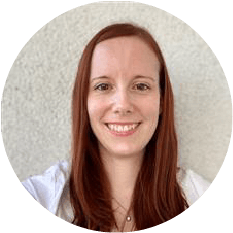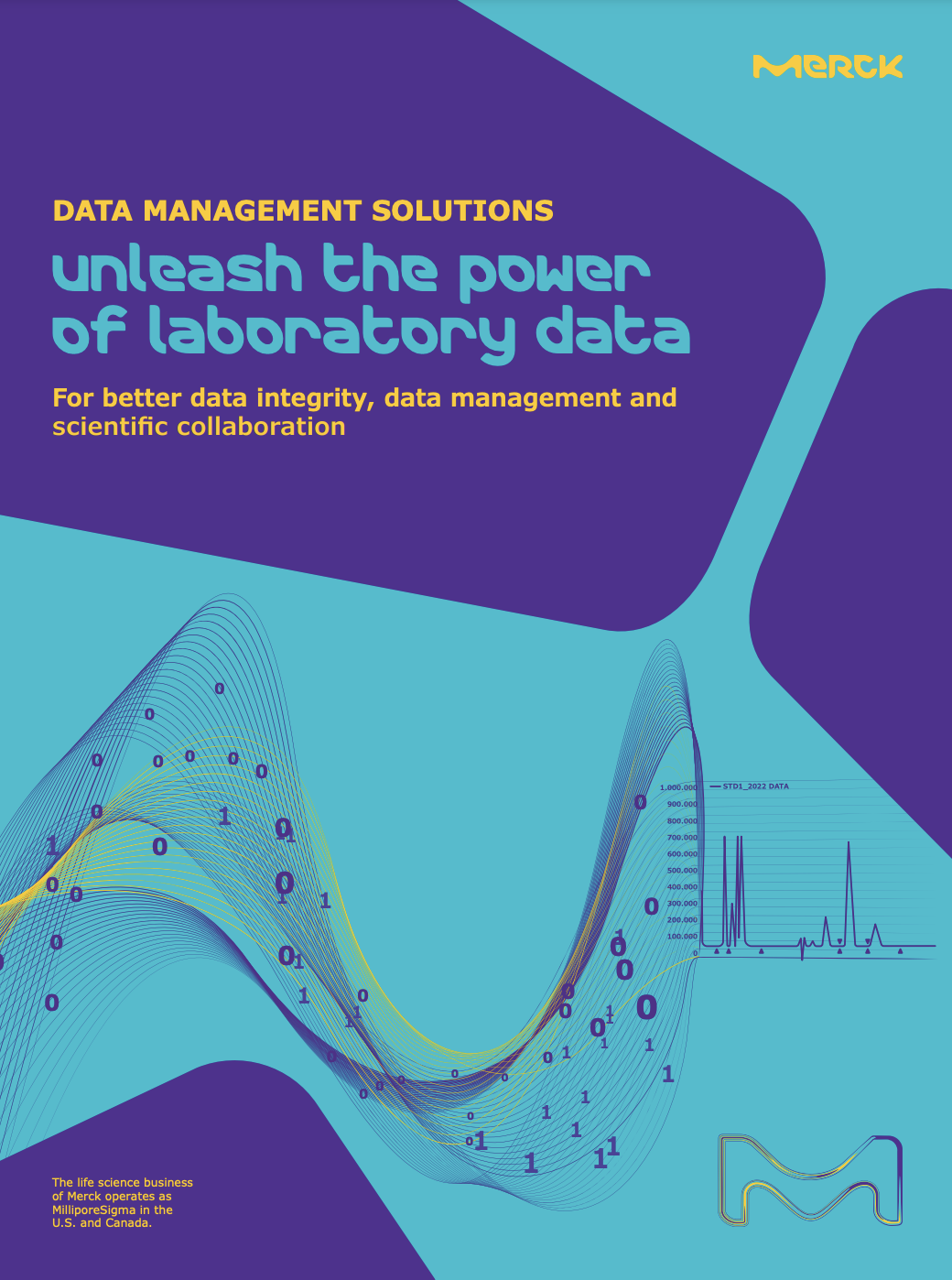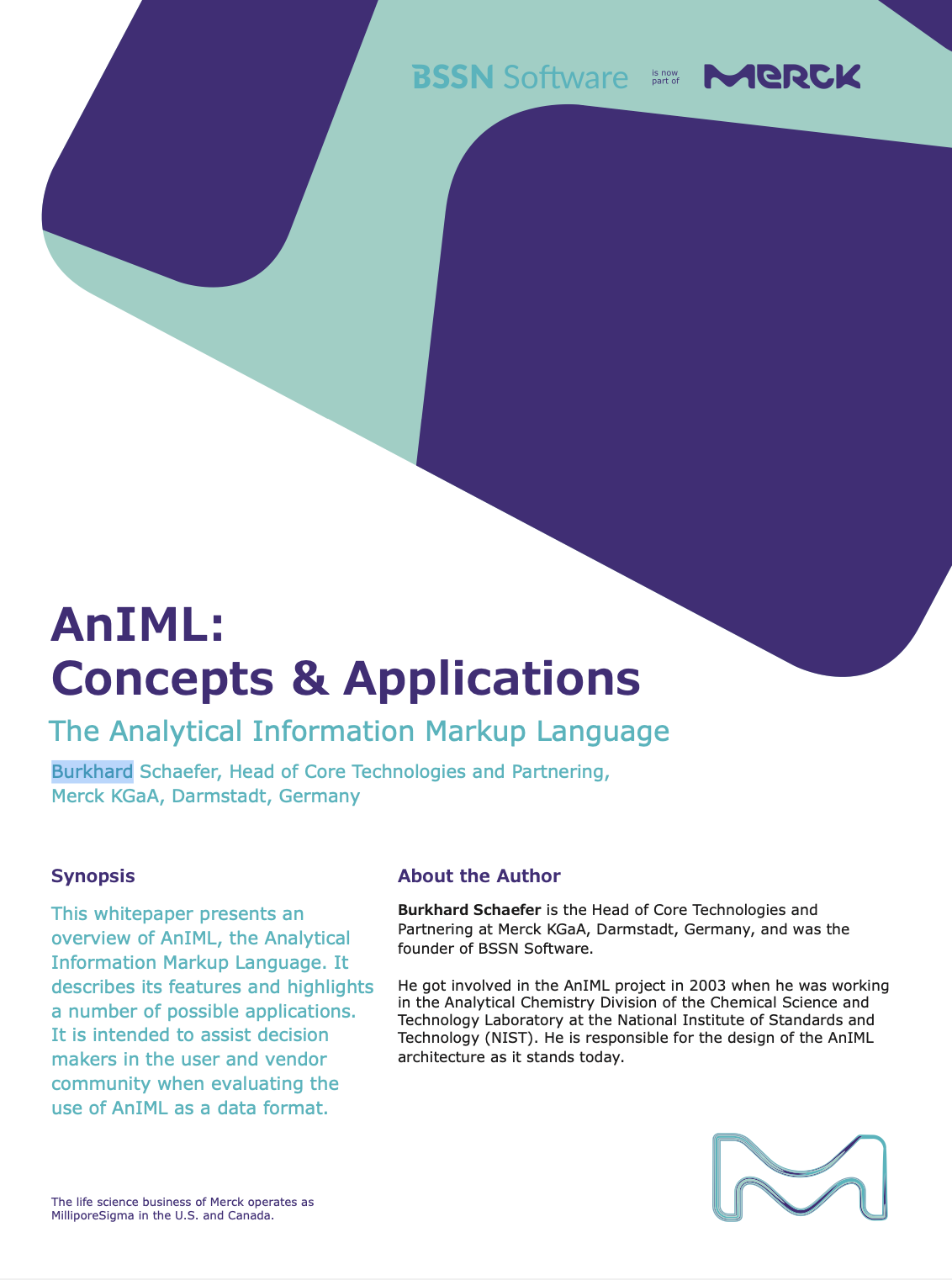
Presenter: Dr. Arne Kusserow, Product Manager Converters Connected Lab Merck
Dr. Arne Kusserow, Product Manager, Merck ConnectedLab, joined BSSN-Merck in Dez 2020 from the scientific publishing business, having 15 years of experience in scientific data management as Editor-in-Chief for online and print B2B publications in the field of Analytical Science. His background is in molecular biology and genetics.

Presenter: Emely Haverich, Lab Informatics Sales Specialist, Connected Lab, Merck
Working in the lab informatics environment for nearly seven years Emely joined Merck and the Connected Lab team as a Lab Informatics Sales Specialist in August 2021.
After finishing her study of Chemical and Biological Engineering she worked for a well known testing laboratory and various software vendors first implementing LIMS (Lab Information Management System), then working as a Sales Consultant.
Overview
Automatization in laboratories calls for normalization of data from different instruments as the very first step. Proprietary data formats lock data in vendor or instrument specific software and make further usage of the data challenging. Converting such data into an open XML format like AnIML, makes the data available for usage (e.g., AI, ML, visualization) and archiving. We showcase how chromatography data from the most widely used software packages in chromatography can be converted in a single file format and compared with each other as well as with data from other instruments and technologies.
We grab data independent from instrument type or vendor from every data source, enrich it with available metadata and hand it over to any data consumer like ELN/LIMS/CDS etc. This gives users the opportunity to store or archive data and facilitates cooperation with internal and external co-operators.
Who should benefit
Instrument and software users in the lab QC Managers
Lab IT-manager, Lab Informatics Specialists Leadership, Lab Heads
Contract partner Managers
Session learnings
Implementing the “Lab of the Future” is a challenge when the data from laboratory devices are not accessible. That lack of data accessibility forces to manually enter data in systems, copy and paste data into LIMS or ELNs, or create and managing paper trails. Using Machine Learning, Big Data, Artificial Intelligence, or simply needing to store historical data, means that you need consistent data, preferably in a commonly structured format. The data need to be accessible.
In this talk we will present how to acchieve data normalization, data harmonization, data archiving, and how to collect data independent from instrument type or vendor from every data source.

Merck KGaA, Darmstadt, Germany, a leading science and technology company, operates across healthcare, life science and performance materials. Merck Life Science’s commitment to advancing and commercializing laboratory informatics has seen its digital portfolio grow through the launches of Synthia™, Milli-Q® Connect, and the LANEXO™ System that rapidly documents laboratory consumables data in real time.
In 2019, Merck acquired BSSN™ Software, a provider of data management solutions to facilitate FAIR laboratory data. Merck´s data management software enable the processing, analysis, archiving, and sharing of laboratory data from multiple sources using industry standards like AnIML and SiLA.
We are committed to helping scientists use open standards to enable greater interoperability in the laboratory.
The life science business of Merck operates as MilliporeSigma in the U.S. and Canada.
Let us know what you’re interested in, and one of our Lab Informatics Consultants will get in touch with you.




